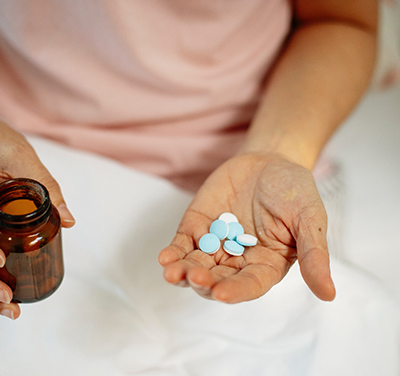About 3.5% of all adults and 30% of veterans are diagnosed with post-traumatic stress disorder (PTSD), yet only half receive the help they need to overcome their overwhelming and ongoing symptoms. The team at New Hope Clinical Research are actively involved in finding new treatments for PTSD by conducting tests to determine the effectiveness of future options. If you’re interested in joining a clinical trial for PTSD medications, call the clinic in Charlotte, North Carolina, or book an appointment online.
New Hope Clinical Research
Research Clinic located in Charlotte, NC

PTSD Q & A
What is PTSD?
PTSD develops after you experience an event that’s traumatic or that threatened your life. You don’t have to directly experience. Many people develop PTSD after learning about a trauma that happened to a relative or friend.
PTSD occurs following many different stressful or traumatic situations, including:
- Physical assault
- Combat duty
- Sexual assault
- Severe accident
- Gun violence
- Death of a loved one
- Natural or manmade disasters
Everyone has a stress reaction to traumatic events, but you should get help if your symptoms last longer than one month, cause you distress, or disrupt your daily life.
What are the symptoms of PTSD?
Anxiety is a pervasive symptom of PTSD, but other more specific symptoms are experienced by patients with PTSD, including:
Re-experiencing the event (intrusion symptoms)
You may re-experience the trauma through flashbacks, memories that constantly intrude into your consciousness, and nightmares. Simply remembering the event causes emotional distress and may lead to physical symptoms such as shortness of breath.
Heightened arousal and reactivity
You may feel strong emotions or develop behaviors that are different from the way you were before the traumatic event. You may startle easily, become aggressive, or engage in destructive behavior. Some patients have a hard time sleeping or concentrating.
Avoidance behavior
You try to avoid anything that reminds you of the traumatic event, including people and places.
Negative mood, feelings, or thoughts
You have negative thoughts about yourself or the world. You may blame yourself or others for causing the trauma. Many patients become isolated and lose interest in activities they used to enjoy.
How can clinical trials improve treatment for PTSD?
The current treatment for PTSD targets specific symptoms. For example, your doctor may prescribe antidepressants, anti-anxiety medications, or medications to relieve sleep problems and nightmares.
The team at New Hope Clinical Research are dedicated to finding new, more effective PTSD treatments, so they conduct clinical trials to study whether new drugs are safe and effective. They may also evaluate new uses for existing drugs or compared the results of two different medications.
The experienced doctors and nurses at New Hope Clinical Research make every possible effort to ensure your safety. They’re also backed up every step of the way, as the US Food and Drug Administration reviews and approves the process and results.
New Hope Clinical Research relies on people with PTSD to join their clinical trials. If you’re interested and would like to learn more about current or future studies, call the clinic or book an appointment online.








